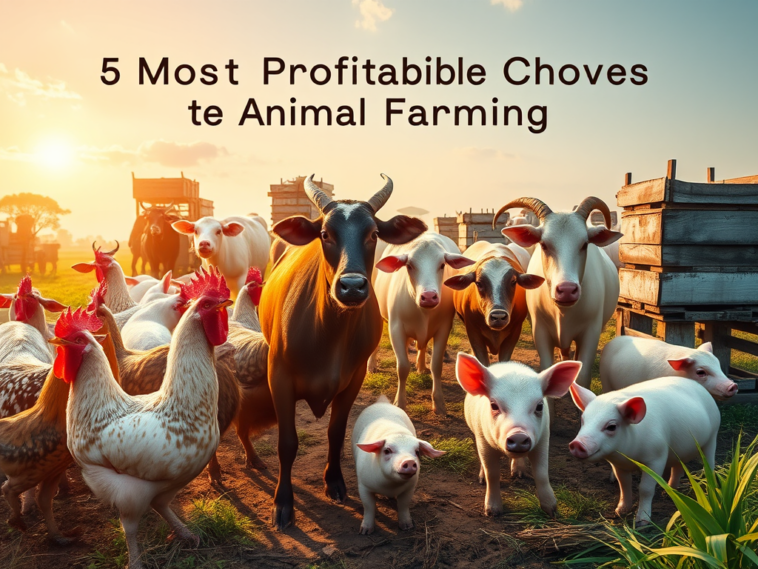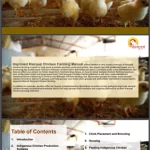Kenya's 5 Most Profitable Choices for Animal Farming
With animal farming becoming a popular investment option for business owners in both rural and urban regions, Kenya's agricultural sector continues to be a primary source of income. The demand for animal goods, better breeds, and training opportunities is growing, making agriculture more profitable than ever. The following are five of the most lucrative animal farming enterprises in Kenya that you may consider, whether you are starting little or planning for the future.
- Kienyeji Chicken Farming
- Dairy Goat Farming
- Dairy Cow Farming
- Pig Farming
- Beekeeping (Apiculture)
1. Kienyeji Chicken Farming
One of the quickest expanding agribusiness enterprises in Kenya is the cultivation of indigenous kienyeji chickens. It is simple to run, has a strong market for both meat and eggs, and needs little startup money.
Why it’s profitable:
- Hardy and disease-resistant birds
- High demand in local markets
- Low-cost housing and feeding (can free-range)
- Continuous egg and meat supply
You can enhance profitability by using the Kienyeji Chicken Farming Manual and following structured vaccination, feeding, and housing guidelines. For ongoing tips, visit kienyeji.org, a platform dedicated to supporting indigenous poultry farmers in Kenya.
2. Dairy Goat Farming
As health awareness continues to rise, a growing number of Kenyans are turning to goat milk for its superior digestibility and lower cholesterol content. The practice of dairy goat farming is becoming increasingly popular, particularly among small-scale farmers in elevated regions.
Profit highlights:
- Higher milk prices than cow milk
- Can thrive in small spaces
- Low feeding costs, especially with proper fodder planning
- Multipurpose benefits: milk, meat, and manure
3. Dairy Cow Farming
Despite requiring significant capital, dairy cow farming continues to be one of the most lucrative long-term investments. By utilizing quality breeds such as Friesians or Ayrshires and implementing effective management practices, farmers can generate daily revenue from milk sales.
Profit drivers:
- High milk yield per cow
- Growing demand for dairy products in urban areas
- Opportunity for value addition (yogurt, ghee)
- Access to cooperative societies and cooling plants
4. Pig Farming
Kenyan farmers are increasingly turning to pig farming as a preferred option. Pigs have a rapid rate of growth and a short reproduction cycle, resulting in a high rate of return on investment.
Why it works:
- High feed-to-meat conversion ratio
- Pigs farrow twice a year, with 8–12 piglets per litter
- Pork demand is growing in urban centers
- Requires less space than cattle
5. Beekeeping (Apiculture)
Farmers with little time or land are best suited for beekeeping. A farmer can harvest royal jelly, propolis, honey, and wax with little input.
Benefits of profit:
- High cost of raw and processed honey on the market
- Low cost of feeding and maintenance
- Bees help pollinate crops, which is advantageous for mixed farmers.
- Potential for honey and bee products to be exported
Conclusion
Animal husbandry in Kenya offers significant income potential for farmers who are strategic, knowledgeable, and committed. With options ranging from the hardy Kienyeji chicken to premium products like goat milk and honey, there is something suitable for every budget and area. Begin with small-scale operations, engage in ongoing learning, and utilize reliable resources such as kienyeji.org and practical guides like the Kienyeji Farming Manuals to effectively expand your agricultural business.

